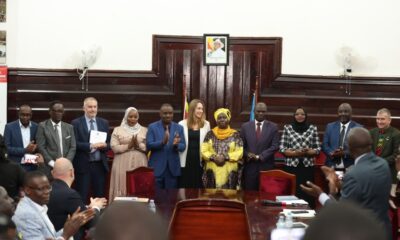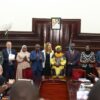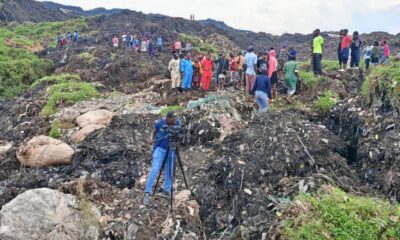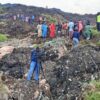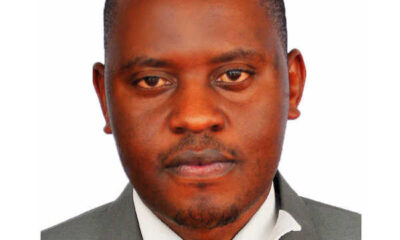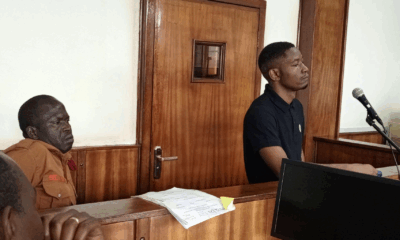News
Belgium offers UGX16bn targeting adolescent girls in Kampala
The 4-year programme will include cash transfers to some 3000 in and out of school vulnerable girls

Dr Munir Safieldin, UNICEF Representative in Uganda (Left) with the Belgian Ambassador to Uganda Rudi Veestraeten
The Government of Belgium on March 22, announced a financial contribution of EUR 4.2 million (Approx. UGX16bn) to UNICEF to support initiatives that will support up to 3,000 vulnerable in and out-of-school girls in Kampala. The programme envisages activities such as mentorship, linkages to essential social services and a cash transfer to enable the vulnerable girls transition safely into adulthood.
The four-year Belgian contribution to UNICEF will support its ongoing Girls Empowering Girls (GEG) social protection programme implemented in partnership with Kampala Capital City Authority in the five divisions of Kampala.
“With our support, Belgium aims to demonstrate the impact of innovative financing modalities such as cash assistance in order to help inform the establishment of social protection mechanisms in Uganda,” said H.E Rudi Veestraeten, Ambassador of Belgium in Uganda and South-Sudan.
In Uganda, adolescent girls living in urban areas bear the burdens of poverty and exclusion, while remaining vulnerable to exploitation and abuse. Worse still, the COVID-19 pandemic has exacerbated deprivations while posing new challenges for children and young people.
Adolescent girls, in particular, are vulnerable to a host of challenges, including teenage pregnancies, which contribute to school dropouts and reduce income-generating opportunities. Interventions like the Girls Empowering Girls programme, which target the most vulnerable, are some of the most effective ways of addressing these vulnerabilities.
There is growing evidence globally showing that social protection programmes that include cash transfers have had a positive impact on transforming vulnerable groups of the society. Such programmes require concerted efforts by all stakeholders, under the leadership of the government, to ensure they are well planned and effectively rolled out.
Like many developing countries, Uganda still faces challenges that require efforts to safeguard the well-being of many women and children in the country. According to World Bank (2020), the COVID-19 pandemic has unequivocally demonstrated the strategic role of social protection. However as of July 2021, effective social protection coverage was estimated at 2.9 per cent, with the government spending only an average of 0.25 per cent of GDP on social protection, on average.
“As stakeholders, we have a duty to ensure that all children enjoy their rights as enshrined in the Convention on the Rights of the Child, including the right to protection,” Dr Munir Safieldin, UNICEF Representative in Uganda, noted.
“With the financial contribution from the Belgian Government, we will work with the Government of Uganda, through Kampala Capital City Authority (KCCA) to scale up the GEG programme from the current 1,500 to 3,000 in and out-of-school adolescent girls. We are confident this unique intervention will keep growing and help sustain demand for critical services by young people in Kampala,” he added.
The programme will be managed by Kampala Capital City Authority (KCCA) and implemented by two civil society partners.
Comments



